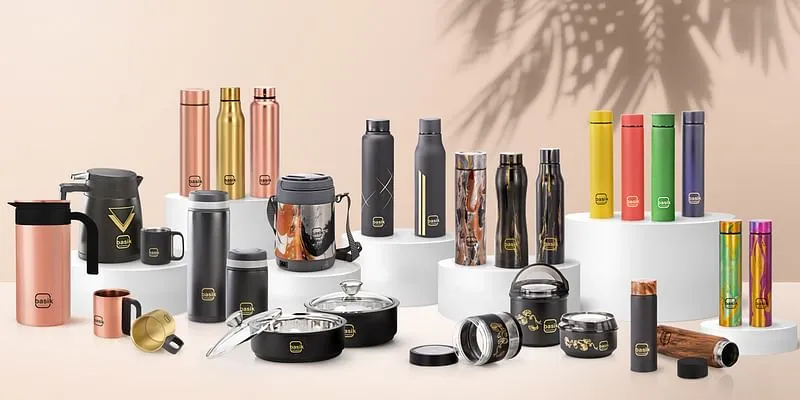Increasing demand for silver to attractive stainless steel products, and other top picks of the week
This week, SMBStory spoke to several jewellery brands to understand why silver is catching the customer's eye and other top stories of the week.
Silver has always found new ways to be in vogue, even though gold has always been the symbol of wealth. But that’s changing now. According to Statista, demand for silver jewellery in India crossed 600 metric tonnes in 2021; the big push happens during the festive season.
Silver Institute, a marketing body funded by the silver industry, shows that the precious metal is stealing some sheen off gold, with its global demand rising to a record high of 1.112 billion ounces (340 million kg) in 2022.
SMBStory spoke to several jewellery brands, and here's what they think about why silver is catching the customer's eye.
The surge in the price of gold could be a factor, which shot up by 25% since March 2020, and the price of silver fell steadily since August of the same year. Another reason is the COVID-19 pandemic, which created chaos in the gems and jewellery market as demand thinned out while gold and silver prices remained high.
Silver jewellery outshines gold as Indian brands sense business opportunity
Other top picks of the week:
Making stainless steel products pocket-friendly
Mumbai-based Basik Homeware was founded in 2016 by siblings Vidhi Jain, a former fashion designer, and Viral Jain, who has worked in his family homeware business. The brand is keen to give the good old stainless steel an aesthetic spin and reduce India’s dependency on imported containers and kitchenware. The siblings, who had grown up around homeware, realised that it was only fitting to start a business of their own in the same industry.
The homegrown brand offers a range of storage items, including vacuum flasks, tiffin boxes, water jugs, casseroles, and coffee mugs, in a range of colours and designs priced between Rs 100 and Rs 1000. It aims to make stainless steel products affordable to people of various income groups.
“Stainless steel is generally expensive due to the higher cost of production. Basik Homeware products are about 25% cheaper compared to other brands in the market. We’ve eliminated the cost of importing raw materials," says Viral.
Basik Homeware generated a revenue of Rs 27 crore in FY22, selling three lakh units per month. The company is aiming for Rs 60 crore in FY23.

Basik Homeware's range of products
How D2C fashion has transformed the online fashion industry in India
BSE SME boasts of 402 companies
The Bombay Stock Exchange (BSE) SME platform crossed the milestone of 400 companies with the addition of eight small businesses on October 10. Piyush Goyal, Union Minister of Commerce and Industry, rang the ceremonious bell in Mumbai to mark the occasion.
The platform, which aims to offer an entrepreneur and investor-friendly environment, lists Indian SMEs in the regulated and organised sector and are assisted in raising equity for their growth and expansion, thus helping them transform into full-fledged companies.
Transforming the online Indian fashion industry
In the mid-late 2000s, with the rise of online shopping, ecommerce companies like Myntra, Jabong, and others changed the way fashion was experienced and bought. Unlimited choices, great discounts, doorstep delivery, and easy exchange/returns were now characterising the fashion shopping experience.
While fashion marketplaces continued to cater to the consumers at scale, another shift in the mid-2010s was how fashion could be bought and consumed, which was transformed by the boom of D2C fashion brands in India.
D2C enables brands to collect rich customer data at a scale, impossible to get with retail and is out of access via marketplaces. As more and more new brands enter the online market, the customer has increasing choices of brands to buy from.
D2C opens up infinite potential for personalisation. While some experimentations are already underway (like AR trial rooms) innovative ways to use AI and AR will further revolutionise the way we shop apparel online in the coming few years.
Edited by Suman Singh







